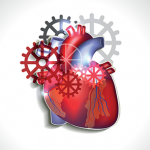
Medicine is one of the most challenging professions because it demands incredibly disparate skills. Physicians operate at the extremes of human existence—life and death—and therefore have to move rapidly and facilely through emotional realms. In their behavior, physicians are the ultimate multitaskers.
One Doc, Many Personae
Consider the surgeon. Once in the operating room, the surgeon is the supreme technician—composed, dispassionate, and focused entirely at the task at hand. Having just sawed a person in two amidst the smell of burning flesh and the puddling of thick red blood, he methodically extirpates the evil of cancer or takes out an old part and puts in the new. All of this occurs with the steadiness and precision of a Swiss watchmaker, as if the person on the table was merely a faulty machine needing some fixing.
Once the operation is over, however, the surgeon must transform into a different creature. As he takes off the mask and gown, he acquires a new persona to speak to the anxious family of the patient he has just sewn up. The surgeon is now different. He is concerned, compassionate, open to the flood of emotions that springs up no matter whether the news is good or bad. Now the surgeon is friend and counselor, like a clergyman who has to plumb the depths of feelings that any dire illness brings forth. And when the patient finally awakes from the anesthesia, the surgeon may be called upon to deliver the worst of all news with honesty, sensitivity, and empathy.
These transitions do not always come naturally and, like all physicians, surgeons are schooled to shift identities many times each day.
Just as physicians have to operate with enormous emotional range, they have to variously work alone or in teams. Medicine is a remarkable mélange of solitary activity and intense collaboration. Physicians are often entirely on their own and must make important decisions on the basis of their own instincts, without any help. Often, the physician cannot ask for help—the situation is too urgent and pressing. Immediate action is demanded and a physician has to have the confidence to go it alone.
Nevertheless, a physician has to blend into a team and cooperate with individuals who differ in age, education, profession, skill, earnings, and perspective—among a panoply of other attributes. The ward on a general hospital is as complicated as any other collective activity pursued by people. In that arena, the physician has to be a cog in the wheel even if he thinks he is more.

